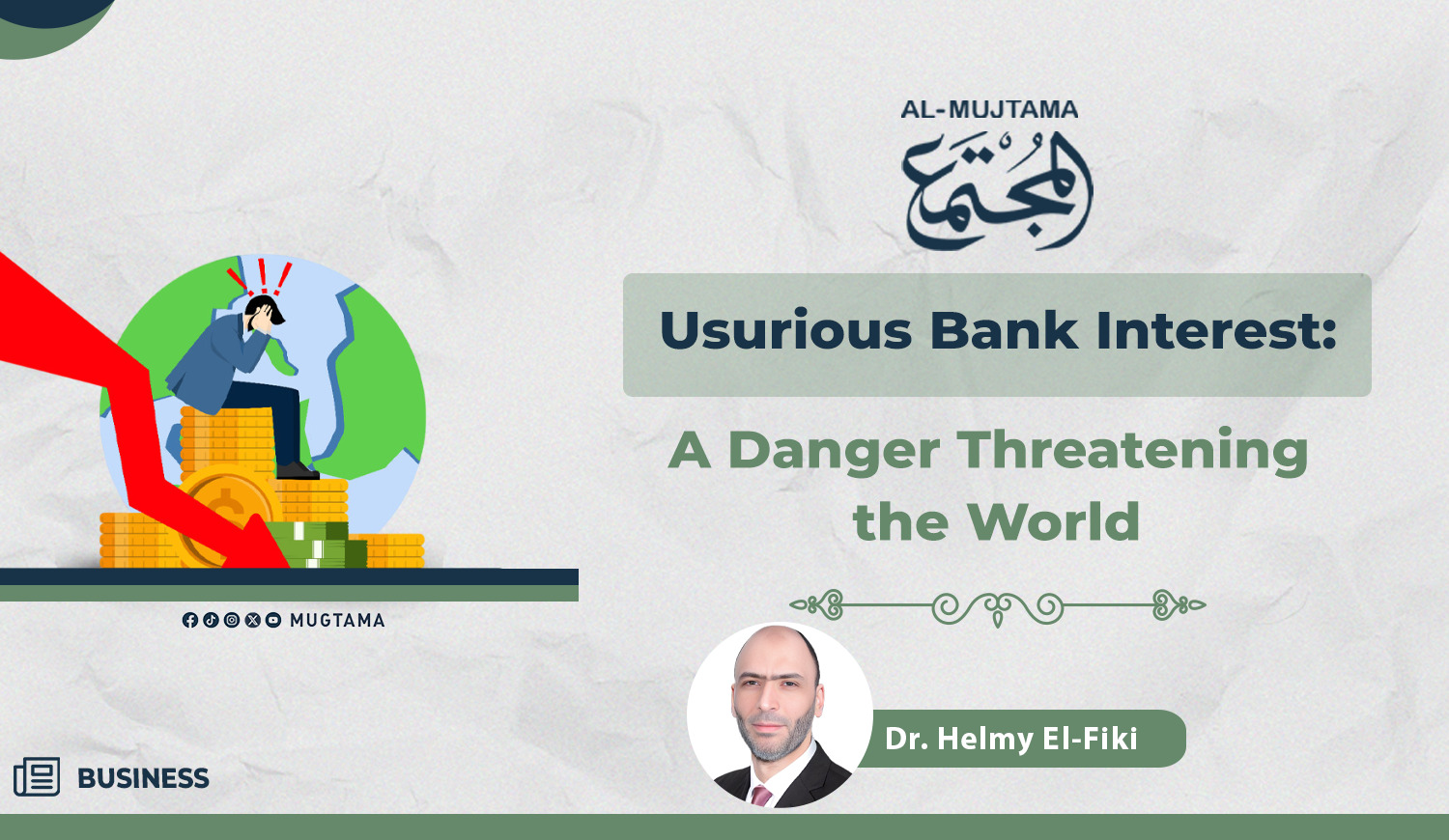Islamic Economics is Unique in solving economic Problems
Usurious Bank Interest: A Danger Threatening the World

Usurious Bank Interest: A Danger Threatening the World
Usury is forbidden in all divine laws: Judaism, Christianity, and Islam. Contemporary economists and religious scholars agree on the prohibition of usury and bank interest. Numerous fatwas have been issued to this effect, and jurisprudential councils have convened and concluded that bank interest is precisely the usury that is unanimously forbidden.
On June 11, 2025, CNBC Arabia
reported: "Once again, US President Donald Trump demanded that the Federal
Reserve Chairman lower interest rates due to the inflation rate rising to 2.4%
in May 2025. Before that, Trump called for lower interest rates to counter
difficult economic measures, especially the wave of tariff increases in recent
months."
The American president, who is not an
economist, has realized the danger of bank interest to the economy and many
aspects of life. He warned the Federal Reserve Chairman about the necessity of
lowering interest rates. Furthermore, on June 27, 2025, he again attacked
Jerome Powell, the Federal Reserve Chairman, calling him stupid and foolish for
not lowering interest rates. He said that the interest rate should be 1%, and
the current rate of 4.5% is too high, adding that lowering the interest rate by
two percentage points would save America $600 billion annually. He added that
America loses this amount annually because of a foolish person—referring to the
Federal Reserve Chairman—who sits there and says: "I see no reason to
lower interest rates!"
Bank interest halts the wheel of the
economy because it is a war from the Creator against the creation:
“But if you do not, then
be forewarned of a war from Allah and His Messenger.” (Al-Baqarah: 279).
This bank interest was the most
significant cause of the successive global financial crises that afflicted the
global economy, inflicting severe losses. The most recent was the 2008 global
financial crisis, which amounted to $50 trillion, according to estimates by
experts from the Asian Development Bank (ADB), as published on Al Jazeera Net
on August 29, 2009.
Silvio Gesell (1862 – 1930) stated
that the growth of capital is hindered by the interest rate on money. If this
interest were removed, the growth of capital in the modern era would double to
an extent that justifies reducing the interest rate to zero in a short period.
Following the 2008 global financial
crisis, the renowned French economist Maurice Allais, a Nobel laureate in
economics, affirmed that the devastating financial crises striking the global
economy, led by savage liberalism, are pushing the global economy to the brink
of a volcano threatening collapse. To overcome these crises and restore balance
to the global economy, he proposed two conditions: first, adjusting the
interest rate to near zero, and second, reviewing the tax rate to approximately
2%.
This aligns perfectly with the
prohibition of usury in Islam, where fatwas have unanimously declared it
forbidden. The second proposal aligns with the proportion of Zakat in Islam.
On October 5, 2008, Boubess Vincent, editor-in-chief
of Challenges magazine, wrote about the global financial crisis, saying:
"In this crisis, we need to read the Holy Quran more than the Gospel to
understand what is happening to us and our banks. If those in charge of our
banks had tried to respect and apply the teachings and rulings in the Holy
Quran, we would not have suffered such disasters and crises, nor would we have
reached this deplorable situation, because money does not beget money."
In 2024, the global debt reached $328
trillion, which is more than three times the global GDP. This portends
devastating financial disasters and crises for any local or global economic
growth, especially considering that America's debt alone reached $35 trillion,
making it the world's leading economic power and, at the same time, the largest
debtor in the world.
The ratio of the financial economy to
the real economy in the world signals a major catastrophe threatening the
global economy with a sweeping danger that consumes everything in its path. The
financial economy in the world has reached more than fifty times the real
economy. According to monetary policy rules in economics, the financial economy
should be equal to the real economy, or perhaps two or three times greater.
Reaching 50 times is an unlimited catastrophe.
There are many reasons for this,
including: bank interest, debt selling, excessive dealing in futures and
options contracts, issuing bonds, and excessively printing banknotes far beyond
the permissible limit in the generally accepted monetary policy controls among
contemporary economists.
John Maynard Keynes, a pioneer of
modern economics, stated that a high interest rate hinders production because
it tempts the capital owner to save for a guaranteed return without exposing
their money to risk in industrial and commercial projects. On the other hand,
it does not help the businessman expand their operations because they see that
the return from expansion does not equate to the interest they would pay as a
borrower. Therefore, any decrease in interest rates will lead to an increase in
production, and consequently in employment, creating opportunities to employ
more people.










